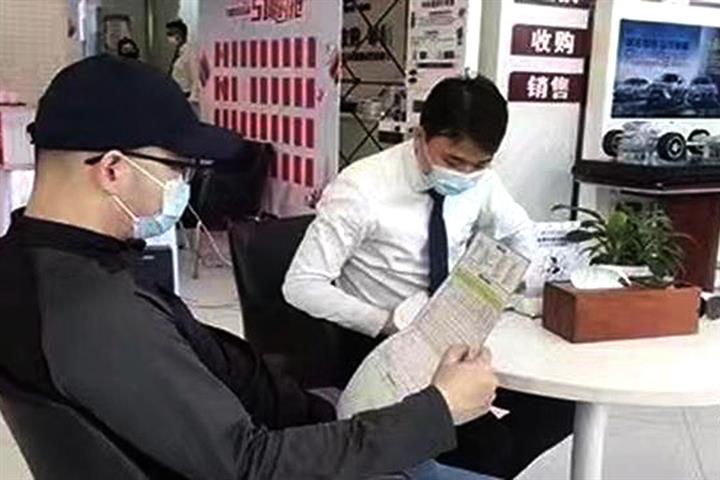 NEV Subsidies Help Lift Car Sales in Covid-Hit Guangzhou Over Labor Day Long Weekend
NEV Subsidies Help Lift Car Sales in Covid-Hit Guangzhou Over Labor Day Long Weekend(Yicai Global) May 6 -- A sudden outbreak of Covid-19 in the Chinese economic hub of Guangzhou during the five-day Labor Day holiday that recently ended dampened car sales but new energy vehicles still sold well thanks to local government subsidies.
“We normally sell around 100 autos, or at least 80, over the peak Labor Day long weekend,” the general manager of a dealership in Guangzhou’s Baiyun district told Yicai Global. But sales were quite bleak this year, he said.
There has been less footfall at the store as people are staying at home, the manager said. The pandemic also makes people more cautious about the future and less likely to buy big tickets items such as a new car.
Before Covid, the dealership had annual sales of around 2,500 vehicles. On one good year it even achieved sales of almost 3,000 autos. Last year, despite the global chip shortage, it was still able to deliver 2,000 vehicles and broke even.
But this year, the store was forced to close for two weeks in April amid a new outbreak and is losing money. “Things are expected to remain difficult in the second half. We may see our first annual loss in more than a decade,” he said.
NEV sales, though, did well over the long weekend, thanks to local government subsidies. Southern Guangdong province is offering buyers of electric cars a subsidy of CNY10,000 (USD1,500) per vehicle if they scrap their fossil fuel-burning one.
GAC’s electric car marque Aion received more than 5,500 orders, a 87 percent jump from the same period last year, Deputy General Manager Xiao Yong told Yicai Global. This is mainly because the new subsidies have a time limit, and customers need to place their order as soon as possible.
The subsidies provided by the Guangdong government have played a definite role in promoting NEV sales during the holiday, said an account manager at auto manufacturer BYD.
Editors: Tang Shihua, Kim Taylor